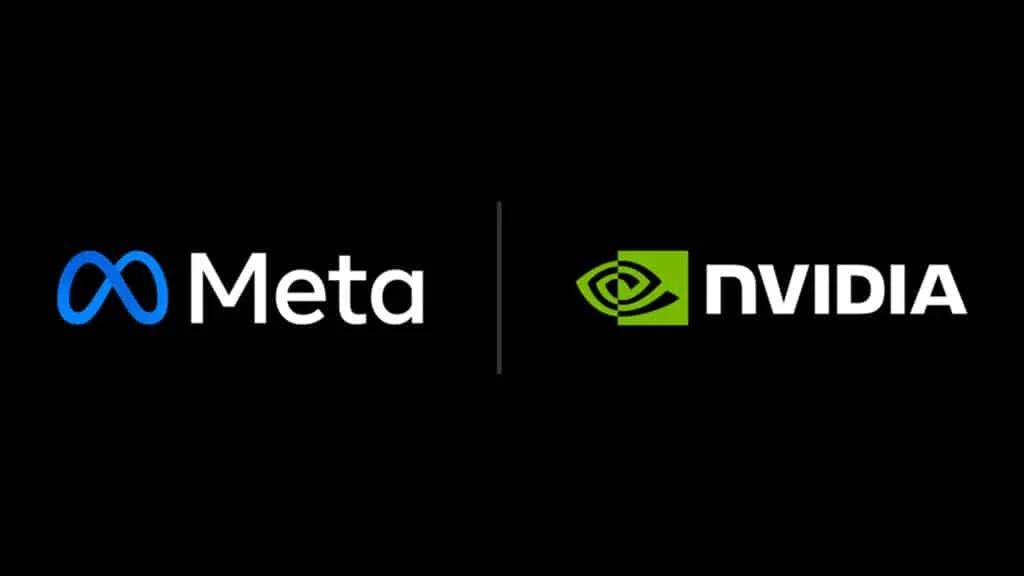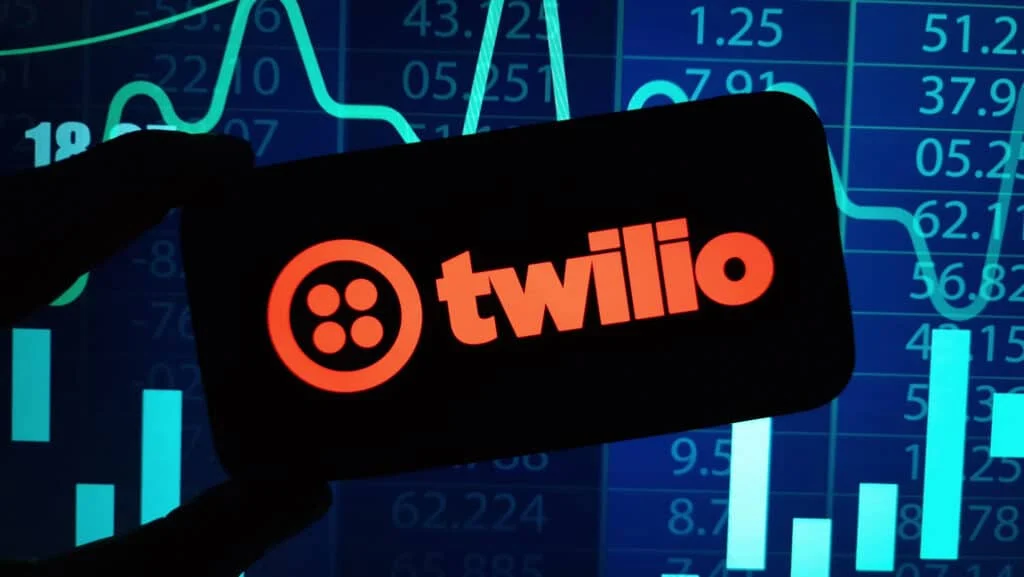On this episode of the Six Five On the Road, hosts Daniel Newman and Patrick Moorhead are joined by Dell‘s Alex Barretto, Senior Vice President for a conversation on how Dell is leveraging AI in their support services.
Our discussion covers:
- The role of AI in transforming customer support at Dell
- Innovative AI technologies Dell is implementing in support services
- The impact of AI on customer satisfaction and operational efficiency
- Future directions for AI in support services at Dell
- Challenges and opportunities in integrating AI into support systems
Learn more at Dell.
Watch the video below, and be sure to subscribe to our YouTube channel, so you never miss an episode.
Or listen to the audio here:
Disclaimer: The Six Five Webcast is for information and entertainment purposes only. Over the course of this webcast, we may talk about companies that are publicly traded and we may even reference that fact and their equity share price, but please do not take anything that we say as a recommendation about what you should do with your investment dollars. We are not investment advisors and we ask that you do not treat us as such.
Transcript:
Patrick Moorhead: The Six Five is On The Road in Las Vegas, Dell Tech World 2024. Dan, this is incredible. It’s the 40th anniversary of Dell Technologies, and rumor has it, you and I met at this event 10 years ago. How about that?
Daniel Newman: Yeah, it is our 10-year anniversary, and I think it’s really important that we call that out in every video that we do here over the next couple of days of coverage. Yeah, it’s an exciting event, Pat. I walked into my room here at the Palazzo where the event is taking place, looked outside and the Sphere was glowing with Dell Technologies. Of course, you’re seeing PCs, you’re seeing data and infrastructure, and we’re seeing this massive pivot. I mean, what a run that Dell Technologies has been on with this AI journey that’s proliferating so quickly.
Patrick Moorhead: Yeah, it’s incredible. What I’ve really appreciated about the announcements is first of all, they’ve been comprehensive, all the way from client to private cloud and everything in between. But as importantly as we’ve seen, Dan, and our companies cover this, is the importance of services. Services not only getting the customers ready to even understand what direction they should go, but also hardware delivery, managing the systems once they get in there all the way through that life cycle. I couldn’t imagine a better person to have on this show than Alex. Great to see you.
Alex Barretto: Good to see you, Pat. Good to see you Dan. Welcome to Vegas. Welcome to the Dell Technologies World. It’s great to be here with both of you.
Patrick Moorhead: Thank you.
Daniel Newman: Yeah, it’s great to have you here, Alex. I mean, look, services are going to be incredibly important over the next few years. We all know that companies are doing everything from trying to proof of concept every idea they have to obviously trying to manage these complex technological environments that they’ve created. AI is like this new inflection, it’s like a new wave. I kind of laugh. It’s like if you were really successful up to this wave, there’s no guarantee of success going forward. By the way, if you maybe didn’t have that perfect, frictionless experience, AI could be the game-changer for you. In your world, in the Dell AI, and let’s just say Dell as a whole in the whole services world, how is all this transition pivoting? How’s the story evolving for you and the business you’re leading?
Alex Barretto: Yeah, that’s a great question, Dan. If you look at services at Dell, we have really been transforming. It used to be really all about the physical assets we have to serve customers in 170 countries. And so to reach the 170 countries, you speak a lot of different languages. You have a lot of different parts depots, so you have a lot of physical infrastructure. But over the last 10 years it has really transformed into a technology services. You look at the software we built, you took all the AI that we injected into the business.
I’ll get to GenAI in a second, but all the AI that we have in there, it’s a massive transformation of the business. Support Assist is a sort of signature product that we have in our Pro Support Suite, and that’s intelligence behind all the support services that we execute. That intelligence really does proactive predictive services for our customers. That translates into enormous values for them. We have TechDirect, which enables customers to manage their fleet of PCs regardless of where they are with supportability, serviceability, manageability, all integrated into one. It’s a software story, technology story, as much as it’s a services’ story. And now with GenAI, that just changes the game one more level.
Patrick Moorhead: Yeah, it’s interesting. Gosh, my company did a research paper chronicling things you were doing in AI I think five or six years ago. So AI is nothing new to Dell, but with generative AI we’ve seen it just amplified. It’s just a different kind of AI that does more things. Let’s do the double-click here. Where are you using AI and then GenAI internally or even your services that you’re providing?
Alex Barretto: That’s a good point, and you made a very important remark there that we have actually been doing AI, now we entered the G word there, so GenAI now. And before we could do that, we actually digitized all of our processes. Services is actually now, as I said, really a technology unit and the digitized processes, then the AI really enable us to unlock efficiencies in how we do things and then customer value. But now with GenAI, how are we doing that? We’re really injecting that in a couple of different areas. First in our offerings themselves.
When you buy Pro Support, which comes with a support system, the support system now inherently has GenAI capabilities in there. We’re looking at everything from the product how it’s engineered. We’re looking at how we perform in the field. We look at calls actually coming in, and we look at the ecosystem that the customer has, and that entire set of data is now available for us to very rapidly analyze and provide insights for our customers, which we couldn’t do before. Before our AI sort of more a linear flow. Now it’s this multi-variable approach at a very, very fast rate, which provides differentiated insights for our customers.
We like to talk about this notion that data has gravity. Because we have engineering data of clouds how they’re designed, we know exactly what’s in our customer environment and how it’s being used and our services data. We combine all that to provide them a differentiated set of assets for our customers. It is great to see. We’re also using for actually agents themselves, so our tech support agents, our field agents, and how they actually execute with something called Next Best Action.
We actually tell our customers what they should do in a certain situation, but it’s really tailored to the specific issue. It’s no longer this notion of, okay, I have a script I got to follow. There’s a protocol, I’ve seen this before, therefore you should do this. It’s not that. It’s really customized to what’s happening in that particular situation, combine all the data assets and then projecting that forward. We do that whether it’s an interaction on the phone with a customer, whether that is a chat interaction. As you know, we serve everything from a consumer to large enterprise. Regardless if it’s chat, on the phone, or proactive predictive, it all leverages the same intelligence that sits behind the scene now with the power of GenAI.
Daniel Newman: Yeah, it’s really interesting to see how it’s proliferating through the organization. Of course, Customer Zero has become a bit of a talking point throughout our tours, Pat, that we go on.
Patrick Moorhead: Exactly.
Daniel Newman: Look, the companies that are implementing but also building this technology are some of the most important, largest companies in the world. It’s kind of like if you don’t drink your own champagne, I almost made the dog food comparison, so let’s go with champagne.
Patrick Moorhead: Throw that out.
Daniel Newman: If you don’t drink your own champagne. When you’re a company the size a Dell that has the service architecture, global employee base, that has the amount of products and support required, I mean, if you can’t make this work, how do you expect people to feel comfortable buying the technology that you’re selling?
Alex Barretto: It’s super interesting you said that because actually when we started the journey on GenAI we actually did it for internal reasons, really get productivity out the door. But it’s amazing, and Pat you and I talked about this, the number of customers that have actually reached out to us and said exactly what you said, Dan, “How are you doing?” This thing that started as an internal thing has now extrapolated externally because of the number of customer questions coming in. It’s like, “Tell me more. Tell me how did you do it? What are the pitfalls that you actually encounter? How did you navigate through it?” It became a productivity piece of body of work, but as well as enabling a very interesting dialogue with our customers and how they could approach their own implementation of GenAI.
Daniel Newman: So Alex, then maybe that would be really useful to everyone out there is what are you learning on this journey as you’re putting this to work? Because I know for sure, I mean, gosh, it was November 22-ish when we saw generative and as research analyst firms that we are, I’m looking at all the content that could be developed, and I still see a ton of the value in who says stuff, but how fast can we go? I’ve been asking this and it’s now over 18 months since that point now. How fast can we go? So how fast are you going? What are you learning over these last… By the way, like we’ve said a few times on this, it’s not just since GenAI and ChatGPT, but I do think that was the match and the gasoline and everything.
Alex Barretto: Yeah, by the way, I’m impressed you know the exact date. That’s pretty cool.
Daniel Newman: Exactly. Roughly around there.
Alex Barretto: What we see and what tell our customers, the first thing, and this by the way we experienced this internally, was, “Okay, where should we focus?” Because there’s so many use cases for GenAI, I mean, it’s a sea of opportunity. We really said, “Okay, we got to be very focused on a particular domain that we’re going to go after. And then within the domain, what are the exact use cases?” So clarity and specificity on what you’re going to go after in terms of area as well as the use cases was very important for us. It allowed us to actually focus the resources instead of being scattered and actually go much faster and everybody try a little bit of a GenAI. I think job one is this notion of very focused use cases, clarity in how you’re going to derive value is fundamental.
The second piece, you said it right there, is speed. Get the use cases honed in and go quickly. Not all of them are going to perform exactly like you expect, but you can navigate through that at speed and you’ll unlock the value. Look, the third piece, which is, we talked a little bit about earlier, but it’s this notion of the data. The data that you have is really where the value’s at. Simply making a query to a generic model is not going to give you a differentiated certain input. So tapping into your data in that domain, in the use cases that you specified, that’s how you unlock the value. Again, the notion of bringing AI to the data.
Daniel Newman: Table stakes, I mean, the open LLMs have almost become commoditized inside of 18 months. Not to say for the few companies that built them, but for us it’s like, “Oh, am I using Gemini? Am I using Chat?”
Alex Barretto: Exactly.
Daniel Newman: We might compare results, but they’ve been basically made free and everybody looks at them as no different than another search engine at this point.
Patrick Moorhead: Yeah, I’m glad you’re hitting on data and you and I have had a lot of conversations on this, and the garbage in garbage out has been true for a computer since they were formed. But in generative AI, it seems like it’s amplified.
Alex Barretto: It’s amplified, exactly.
Patrick Moorhead: Right, which says you can even get rogue personalities come out from some massive LLM that hasn’t been fine-tuned. And then you get into this what generative AI does that machine learning could do, but it was a lot harder, was cross-domain. So for instance, intra-domain, like ERP as an example, or customer service. It was typically stuff that maybe it wasn’t NDA information, but now we’re connecting all of these different worlds, and at least the enterprises that we’ve been talking to their data challenge is the biggest. And maybe when it comes to a data, can you share some things that might make it easier for customers to get through this data challenge?
Alex Barretto: Yeah, we fundamentally believe you have to first, before you even talk about the data, make sure your processes are really honed in, ideally digitized, because everything runs on the process. Then second to your point, Pat, looking at your data and making sure that the data that you’re using is spanning the full use cases that you’re trying to go after. If I reflect on services themselves, I could look at just services data and run a model on that. But when I bring the power of the engineering data, the power of what I’m seeing from the telemetry data coming in, and I combine that, exactly what you said, this multi-variable approach that unlocks new insights, new value. The other piece is how do you actually ask the question. So prompting, how do you actually prompt the right question so you actually can get the right results from the data also equally important.
Patrick Moorhead: That’s great.
Daniel Newman: Well, Alex, I want to thank you so much for joining us here. It’s going to be an exciting few days. It’s been great to see all the announcements, all the progress. Congratulations. All of the success. Pat, it’s been a pretty exciting journey over the last 18 months, not only for generative AI, but to watch Dell and Dell Technologies expand so rapidly and excited to watch how services continues to grow and differentiate itself.
Alex Barretto: Thank you, Dan. Thank you, Pat.
Patrick Moorhead: Thank you.
Daniel Newman: All right, everybody, tune in. We’re here for two days at Dell Technologies World 2024 in Las Vegas, Patrick Moorhead and myself and our expanded team here at The Six Five. We hope you’ll tune into all the videos. We hope you’ll subscribe and join us for all and everything that we cover here at Dell and beyond. But for this one, we got to say goodbye. See you all later.
Author Information
Daniel is the CEO of The Futurum Group. Living his life at the intersection of people and technology, Daniel works with the world’s largest technology brands exploring Digital Transformation and how it is influencing the enterprise.
From the leading edge of AI to global technology policy, Daniel makes the connections between business, people and tech that are required for companies to benefit most from their technology investments. Daniel is a top 5 globally ranked industry analyst and his ideas are regularly cited or shared in television appearances by CNBC, Bloomberg, Wall Street Journal and hundreds of other sites around the world.
A 7x Best-Selling Author including his most recent book “Human/Machine.” Daniel is also a Forbes and MarketWatch (Dow Jones) contributor.
An MBA and Former Graduate Adjunct Faculty, Daniel is an Austin Texas transplant after 40 years in Chicago. His speaking takes him around the world each year as he shares his vision of the role technology will play in our future.












